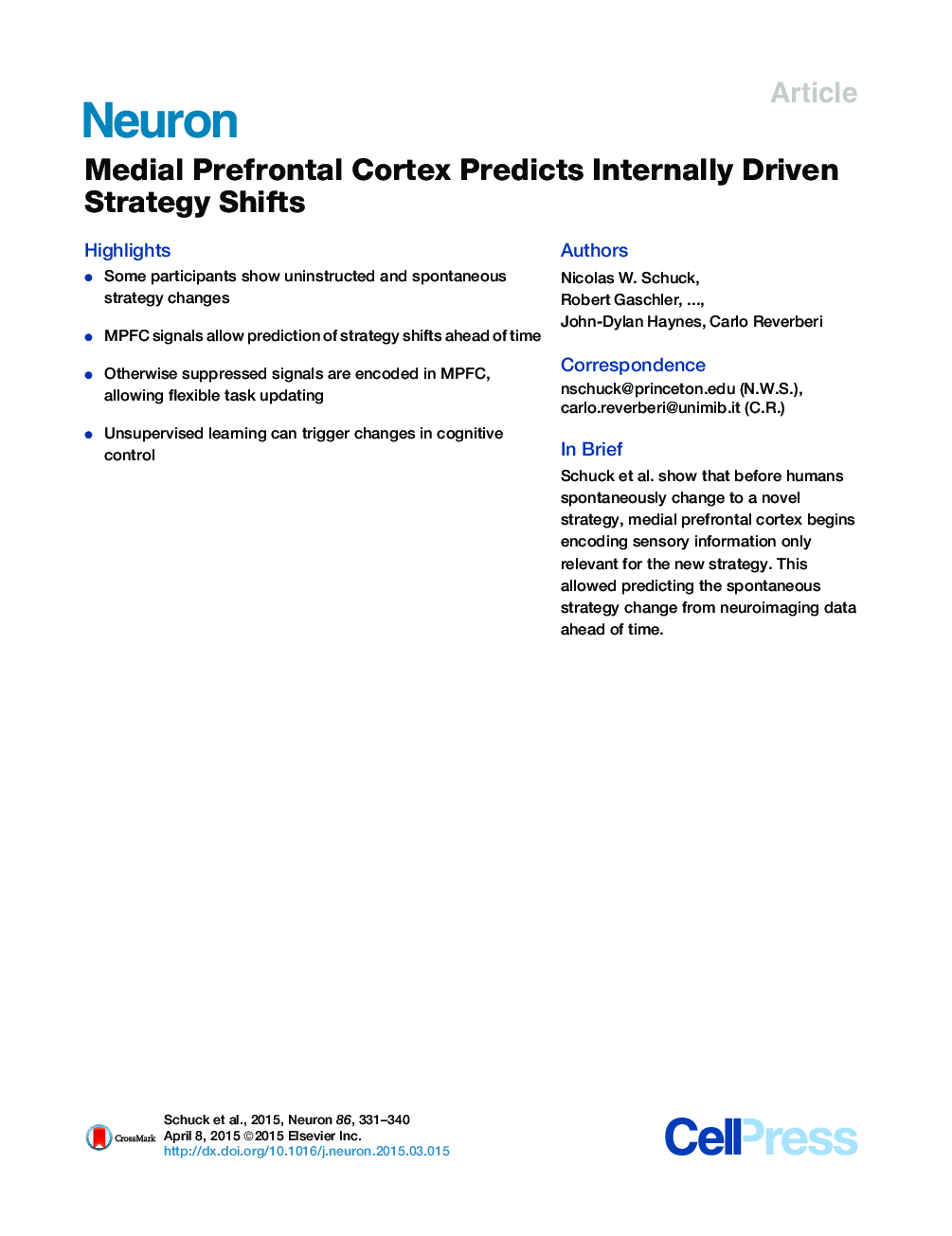| Article ID | Journal | Published Year | Pages | File Type |
|---|---|---|---|---|
| 4321016 | Neuron | 2015 | 10 Pages |
•Some participants show uninstructed and spontaneous strategy changes•MPFC signals allow prediction of strategy shifts ahead of time•Otherwise suppressed signals are encoded in MPFC, allowing flexible task updating•Unsupervised learning can trigger changes in cognitive control
SummaryMany daily behaviors require us to actively focus on the current task and ignore all other distractions. Yet, ignoring everything else might hinder the ability to discover new ways to achieve the same goal. Here, we studied the neural mechanisms that support the spontaneous change to better strategies while an established strategy is executed. Multivariate neuroimaging analyses showed that before the spontaneous change to an alternative strategy, medial prefrontal cortex (MPFC) encoded information that was irrelevant for the current strategy but necessary for the later strategy. Importantly, this neural effect was related to future behavioral changes: information encoding in MPFC was changed only in participants who eventually switched their strategy and started before the actual strategy change. This allowed us to predict spontaneous strategy shifts ahead of time. These findings suggest that MPFC might internally simulate alternative strategies and shed new light on the organization of PFC.
